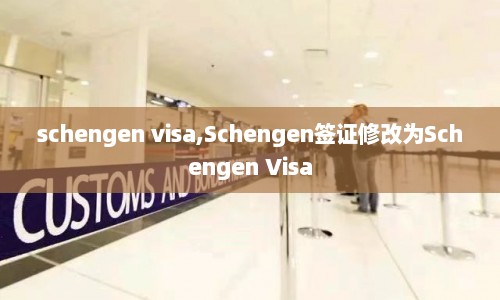Schengen Visa: Everything You Need to Know

If you're planning a trip to Europe, chances are you've heard of a Schengen Visa. This visa allows you to travel freely between 26 countries in the Schengen Area, which includes most of the European Union countries, as well as Iceland, Norway, Switzerland, and Liechtenstein.
What is a Schengen Visa?
The Schengen Visa is a permit issued by the authorities of a Schengen State to a person who wants to visit or travel within the Schengen Area. It is valid for up to 90 days within a six-month period.
In order to obtain a Schengen Visa, you'll need to fill out an application form, provide supporting documents (such as proof of accommodation and travel arrangements), and pay a fee. You'll also need to be able to prove that you have sufficient funds to support yourself during your stay in the Schengen Area.
Who Needs a Schengen Visa?
If you're a citizen of a country that is not part of the Schengen Area, you'll need a Schengen Visa to travel to any of the countries within the area. There are a few exceptions, such as citizens of some countries that have visa-free agreements with the Schengen Area (such as the United States, Canada, and Australia), and citizens of certain countries that are part of the European Union but not part of the Schengen Area (such as the United Kingdom and Ireland).
If you're unsure whether you need a Schengen Visa, you can check with the embassy or consulate of the country you plan to visit, or with the European Commission.
Types of Schengen Visas
There are three types of Schengen Visas:
Uniform Schengen Visa (USV): This is the most common type of Schengen Visa, and it allows you to travel freely within the Schengen Area for up to 90 days within a six-month period. There are two categories of USV: Category A (Airport Transit Visa) and Category C (Short-Stay Visa).
Limited Territorial Validity Visa (LTV): This visa only allows you to travel within the Schengen Area of the country that issued the visa, or in the case of a multi-country LTV, in the specific countries listed on the visa. This type of visa is typically issued for humanitarian reasons or for a specific purpose, such as attending a conference or a sporting event.
National Visa: This visa is issued by individual Schengen States and allows you to stay in that country for more than 90 days, or to engage in work or study. You may also be allowed to travel freely within the Schengen Area during your stay, depending on the category of your National Visa.
Validity and Renewal of a Schengen Visa
A Schengen Visa is typically valid for up to 90 days within a six-month period. Once the visa has expired, you'll need to apply for a new one if you want to continue traveling within the Schengen Area.
If you need to extend your stay in the Schengen Area beyond the 90-day limit, you'll need to apply for a residence permit in the country you're staying in. You should do this before your visa expires, as overstaying your visa can result in fines, deportation, and future visa restrictions.
Conclusion
If you're planning a trip to Europe, a Schengen Visa is an essential document that will allow you to travel freely between countries in the Schengen Area. Make sure to apply for your visa in advance, and to provide all the required supporting documents to ensure a smooth application process.
Remember to check the validity of your visa before you travel, and to apply for an extension or a residence permit if you need to stay in the Schengen Area for longer than 90 days.
